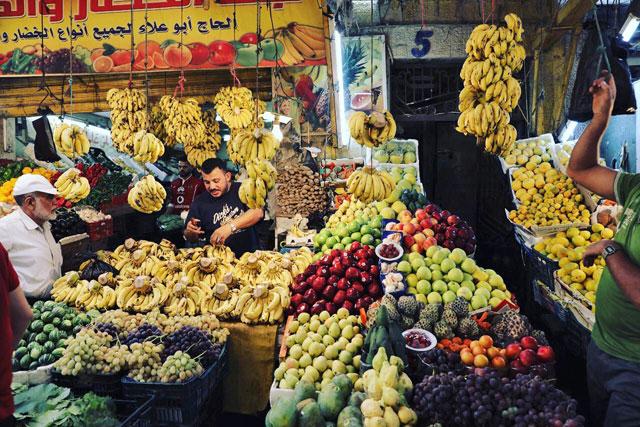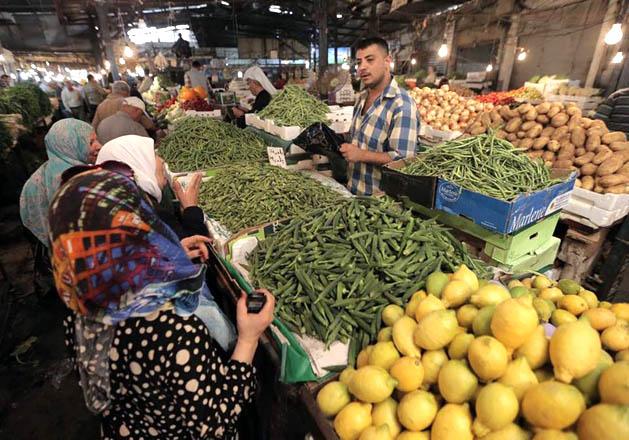You are here
Excluded from Syrian market, produce exporters say border opening fails to bring relief
By Mohammad Ghazal - Mar 20,2019 - Last updated at Mar 20,2019
AMMAN — No trucks laden with commercial quantities of Jordanian fruits and vegetables have entered Syria since the reopening of the border crossing between the two countries in mid-October 2018, Vice President of the Jordan Exporters and Producers Society for Fruits and Vegetables Zuhair Jweihan said on Wednesday.
“Unfortunately, we did not benefit at all from the reopening of the Jaber/Nasib border crossing between Jordan and Syria... We sent a refrigerated truck laden with some fruits and vegetables to Syria when the borders were reopened as a gift and that was the only truck to enter,” Jweihan told The Jordan Times over the phone.
There are no demands at all by Syrian traders and there are “other obstacles” that Jordanian produce exporters face when trying to export to Syria, he said, adding that these obstacles and the current conditions are negatively affecting Jordanian farmers and exporters alike.
“Jordan allowed Syrian agricultural produce to enter the Jordanian market and since the border reopening, scores of Syrian trucks loaded with fruits and vegetables such as onions and apples have entered Jordan, which is unfair to us,” he said.
Before 2011, Jordan’s produce exports to Syria exceeded 200,000 metric tonnes per year, according to Jweihan. Jordan also exported more than 60,000 metric tonnes of produce to Russia, eastern European countries and Turkey via Syria before the border closure.
In April 2015, Jordan closed the Jaber border crossing with Syria for security reasons. Passenger and cargo traffic was halted as a result of the escalating violence in the Syrian town of Nasib, just across the border, some 80km north of Amman.
Jordan Valley Farmers Union President Adnan Khaddam also said that not a single kilogramme of Jordanian fruits or vegetables has been exported to Syria.
“We thought the reopening of the borders would be a win-win situation. But obviously it is not, as the Syrians farmers [have] benefited more... The continuation of this situation means more losses for Jordanian farmers,” Khaddam told The Jordan Times on Wednesday.
Jweihan, who at the time of the reopening of the borders voiced optimism for resumed trade with Syria, on Wednesday said “the situation on the ground is different than what we expected”.
“We are ready to export to Syria, and their markets need some Jordanian produce such as tomatoes and cucumbers, and we are aware that other countries are exporting to Syria, but we do not know why there are still obstacles facing us from the Syrian side,” he added.
Currently, no Syrian fruits and vegetables are allowed entry into Jordanian markets, he said, but the problem is that Syrian trucks enter Jordan and transport their agricultural produce to other countries via Jordan.
“In the summer, the Syrian agricultural products will compete with our produce as their trucks are allowed to export to neighbouring countries... This is completely unfair,” Jweihan added.
Related Articles
AMMAN — Since Syrian fruits and vegetables started to flood the local market following the reopening of the Jordanian-Syrian borders last mo
AMMAN — Jordan's industrial exports to Syria dropped by 70 per cent in the first quarter of 2019, despite the resumption of normal flow over
AMMAN — Agricultural representatives on Wednesday commended the reopening of the Karameh-Turaibil border crossing between Jordan and Iraq, s














